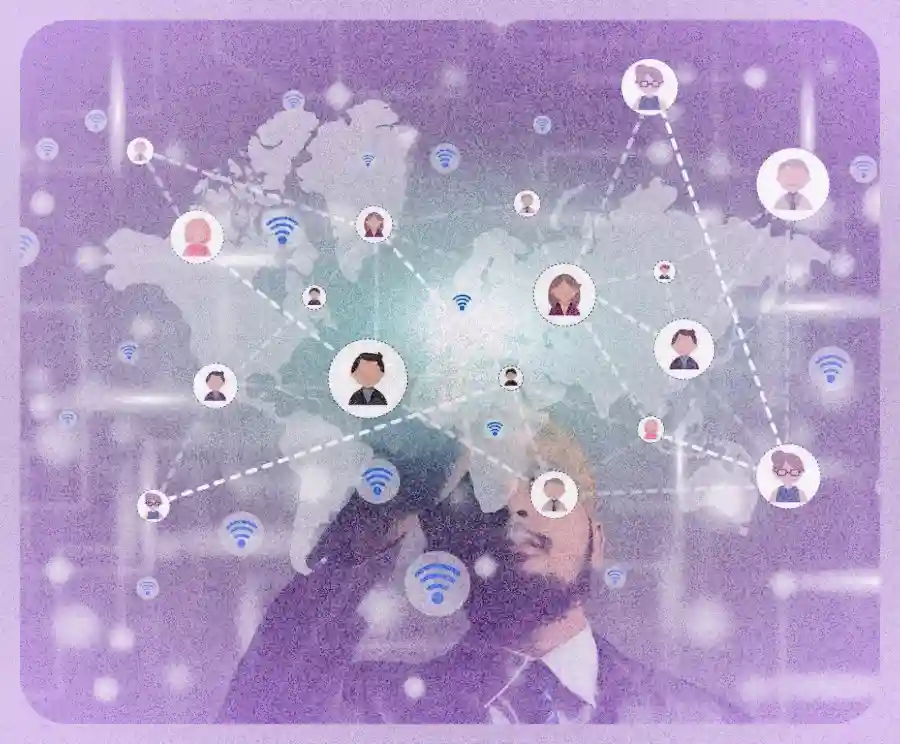A Harvard Business Review study reveals that 56% of customers value excellent customer service more than competitive prices. For call center agents, delivering empathy through every interaction is a game-changer. Following the effective empathy examples will be productive.
Effective empathy example & statements are powerful tools that deepen connections with customers, even over brief calls or chats, making them feel heard, understood, and valued. In this blog, we’ll explore empathy statements, their importance for customer service agents, samples, types, examples, and how ConvoZen.AI will help to enhance Empathy in Customer Service.
What Are Empathy Statements?
Empathy statements are phrases used by customer service agents to express understanding and compassion toward the customer’s feelings and situation. Unlike scripted responses, empathy statements are designed to sound authentic and heartfelt.
By using empathy statements, agents can diffuse tense situations, establish rapport, and create a positive customer experience, even if the issue remains unresolved.
What Are Empathy Statements for Customer Service Agents?
For call center agents, empathy statements are the key to effective customer communication. These statements allow agents to validate the customer’s feelings, which helps foster trust.
Instruction: Create an infographic based on the image given below “Examples of Empathy Statements” with the heading.
- For Frustration: “I understand how this situation must be frustrating. Let me help resolve it for you.”
- For Delays: “Thank you for your patience. I can see why this delay would be inconvenient for you.”
- For Support: “I appreciate you bringing this to our attention. Let’s work on a solution together.”
Simple empathy phrases such as “I understand how frustrating that must be” or “Thank you for sharing that with me; it helps me understand your situation better” show customers that they’re speaking to someone who genuinely cares.
What is Empathy in Coaching?
Empathy in coaching involves understanding an agent’s challenges and emotions and guiding them without judgment. A coach who shows empathy can create a supportive environment where agents feel safe to learn and improve.
This approach makes it easier for agents to adopt empathy statements naturally in their customer interactions, knowing they are genuinely supported by their leadership.
Empathy Statements Without Saying Sorry
While “I’m sorry” is commonly used, there are effective empathy statements that convey understanding without explicitly apologizing. Here are some examples:
- “I understand how this could be a concern.”
- “That must have been frustrating.”
- “Thank you for your patience as we sort this out.”
These statements show empathy without assuming fault, making them powerful tools in call center training.
Sample Empathy Statements for Call Centers
Using empathy statements helps agents create a warmer interaction. Here are some examples that demonstrate empathy without overstepping boundaries:
- “I can see why that would be confusing.”
- “I appreciate your understanding as we work through this together.”
- “Your satisfaction is important to us, and I’m here to help.”
These sample empathy statements are crafted to communicate genuine care and commitment.
Sympathy & Empathy in Customer Service Examples
In customer service, empathy (understanding and sharing someone’s feelings) is often more effective than sympathy (feeling pity for someone). Empathy statements convey a shared understanding, such as:
- Sympathy: “That’s unfortunate, I’m sorry to hear that.”
- Empathy: “I can understand why this situation feels overwhelming; let’s find a solution together.”
- Empathy fosters a sense of collaboration and connection with the customer.
| Want to transform your team’s communication skills? Discover how ConvoZen.AI can help your agents develop empathy through advanced coaching solutions. |
Positive Empathy Statements
Positive empathy statements uplift customer conversations by optimistically acknowledging their concerns:
1. Acknowledging Frustration Positively
- “I understand how this might be frustrating, but I’m here to make things right for you.”
- “That sounds challenging, but let’s work together to find the best solution.”
2. Reassuring the Customer
- “I completely understand your concern. Let me assure you that we’ll resolve this as quickly as possible.”
- “Your issue is important to us, and I’ll personally ensure it gets the attention it deserves.”
3. Expressing Gratitude
- “Thank you for bringing this to our attention. It helps us improve and serve you better.”
- “I appreciate your patience while we work through this. Your understanding means a lot to us.”
4. Empowering the Customer
- “I can see how this could feel overwhelming, but we’ll get this sorted out step by step.”
- “I understand your concerns. Rest assured, we’ll take care of this together.”
5. Creating Optimism
- “I know this situation is difficult, but I’m confident we’ll find a solution for you.”
- “I hear what you’re saying, and I’m here to turn this around for you.”
6. Acknowledging Specific Emotions
- “I understand why you’d feel this way, and I want to make this process as smooth as possible.”
- “It’s completely understandable to feel upset about this. Let’s fix it so you can have peace of mind.”
- “I understand where you’re coming from, and I’m glad we have a solution.”
- “I can imagine that was challenging, but we’re here to make it right.”
Positive empathy statements keep interactions upbeat, even when resolving issues.
Empathy Statements for Chat Support
Chat support empathy requires brevity and clarity. Here are examples tailored for written communication:
- “I can see how that might be inconvenient. Let me help with that.”
- “Thanks for sharing this. I’m here to support you.”
- “I understand, and I’ll do my best to assist you quickly.”
These statements convey empathy while maintaining efficiency in chat interactions.
Empathy Statements for Customer Service During Sensitive Situations
Handling sensitive situations requires a high degree of empathy for call center agents. When customers experience loss or hardship, empathy statements for death in customer service include:
- “I’m truly sorry for your loss. Please let me know how I can support you during this time.”
- “I can’t imagine what you’re going through, but I’m here to assist in any way you need.”
These examples show compassion without being intrusive, providing customers with the support they need.
When and How to Show Empathy in Customer Service?
Empathy is most effective when it’s timely and sincere. Encourage agents to listen actively, acknowledge the customer’s feelings, and respond with a relevant empathy statement.
Whether it’s an issue with a product, a billing error, or a personal loss, knowing when and how to show empathy can turn difficult calls into positive experiences.
How to Coach Agents for Better Empathy?
To coach agents on empathy, provide regular feedback on their interactions, use real-life examples of empathy in customer service, and encourage a growth mindset.
One approach is to review call recordings, allowing agents to hear how they sound and reflect on areas for improvement. Celebrating moments when agents use empathy well reinforces this behavior.
How AI Can Enhance Empathy in Customer Service?
Artificial intelligence (AI) can support agents in delivering empathy. With AI, systems like ConvoZen.AI can monitor interactions, identify opportunities for empathy statements, and provide real-time feedback to agents.
AI can also analyze past interactions to show agents which empathy examples were effective and where improvements are needed, enabling data-driven empathy coaching.
How ConvoZen.AI Can Help Enhance Customer Empathy?
ConvoZen.AI is a powerful tool for enhancing empathy in call center interactions. Its real-time guidance helps agents deliver empathy statements at the right moments, turning challenging conversations into positive experiences.
ConvoZen.AI offers a variety of empathy examples for agents to use, ensuring interactions remain genuine and tailored to the customer’s needs.
| Explore ConvoZen.AI to empower your call center agent’s skills and improve customer satisfaction. |
What Are Empathy Statements, and How Do You Coach Agents on Them?
Empathy statements are essential tools for building customer trust and loyalty. Coaching agents on empathy involves teaching them to use empathy statements naturally, listening to customers actively, and personalizing each response. This is not only about learning phrases but about genuinely understanding and connecting with the customer’s experience.
Types of Empathy in a Call Center
Empathy is a critical skill in call centers, enabling agents to connect with customers emotionally and resolve issues effectively. In a call center setting, empathy can be categorized into three main types:
1. Emotional Empathy
- This involves recognizing and sharing the customer’s feelings.
- Emotional empathy allows agents to understand the customer’s frustration, joy, or disappointment and respond in a way that reflects genuine care.
Example: “I can sense how upsetting this situation must be for you. Let me do everything I can to assist.”
2. Cognitive Empathy
- Focuses on understanding the customer’s perspective without necessarily sharing their emotions.
- It’s about logically putting yourself in their shoes to grasp their concerns and offer relevant solutions.
Example: “I understand why you’re upset about the delay. Let’s work on getting this resolved quickly.”
3. Compassionate Empathy
- Combines emotional and cognitive empathy, driving agents to take actionable steps to help the customer.
- It’s not just about understanding but actively working to resolve the issue with care.
Example: “I understand this has been a frustrating experience. I’ll escalate this right away to ensure it’s resolved as quickly as possible.”
Role of Empathy Statements for Call Center Agents
Empathy statements enable agents to acknowledge customer concerns respectfully, easing tension and showing that the agent cares.
1. Building Trust and Rapport
Empathy statements show customers that their feelings are understood and validated, creating a sense of trust.
2. Diffusing Tense Situations
When a customer is upset, empathetic responses can de-escalate tension.
3. Improving Customer Experience
Agents who use empathy statements foster positive customer experiences, turning potentially negative situations into opportunities for building loyalty.
Conclusion
Empathy is the cornerstone of exceptional customer service, transforming routine interactions into meaningful engagements. However, many call center agents struggle to maintain consistent empathy due to high call volumes and time constraints.
This is where ConvoZen.AI makes a difference, providing agents with real-time empathy coaching and tailored empathy examples.
Customer service managers can be assured that their teams are equipped with the tools and training needed to deliver empathy-driven service. Ready to elevate your team’s empathy skills?
Start your journey with ConvoZen.AI today, and empower your agents to deliver empathy that builds lasting customer relationships with a demo.
FAQs
Coaching call center agents on empathy requires structured training, practical examples of empathy, and regular practice.
Empathy statements build trust, diffuse tension, and create a positive experience by making customers feel heard and valued.
Regular training, role-playing exercises, and real-time coaching can help agents develop and naturally use effective empathy statements.
Yes, empathy statements foster better communication and understanding, leading to faster and more satisfactory issue resolution.
AI tools like ConvoZen.AI provide real-time feedback, suggest appropriate empathy phrases, and analyze interactions to guide agents in delivering empathetic responses.
I understand how frustrating this must be for you. Let me help resolve this as quickly as possible.


